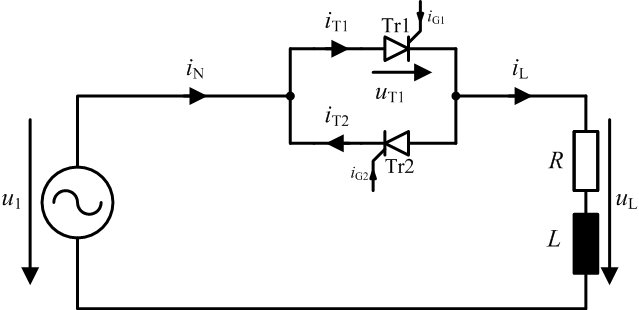DC to DC Buck Converter with MOSFET
In this experiment, a DC to DC buck converter with MOSFETs shall be tested, paying special attention to
- the current and voltage conditions of DC to DC buck converters,
- the switching behaviour and the characteristics of a MOSFET,
- the control of DC to DC buck converters.
Another topic is to get acquainted with a method for determining switching and forward power losses in case of power semiconductors by using a digital storage oscilloscope.
Series Resonant Inverter
Series resonant inverters belong to the group of load-commutated inverters. The voltage needed for commutation is provided by the load.
In this experiment, a series resonant inverter is examined. Depending on the clock frequency and on the oscillating circuit parameters, the following parameters are measured and evaluated:
- waveforms of voltage and current,
- control characteristic,
- turn-off time,
- inverter instability.
Two-level Inverter
Nowadays, two-level inverters with a DC link are usually used to generate an AC voltage with variable frequency and amplitude. For this purpose, a three-phase two-level inverter is tested within this laboratory. By experiments on a modular device, the output spectra of the following modulation methods are monitored and evaluated.
- Sine modulation
- Space vector modulation
- Flat top modulation
AC Power Controller
In this experiment, the electric characteristics of AC power controllers shall be investigated for different loads and depending on the trigger delay angle. The experiment especially deals with
- measurement of voltage and current waveforms,
- measuring of the control characteristic,
- determination of thyristor data,
- analysis of current harmonics.
The measurements obtained in the lab shall confirm the results achieved analytically during the preparation of the experiment.















